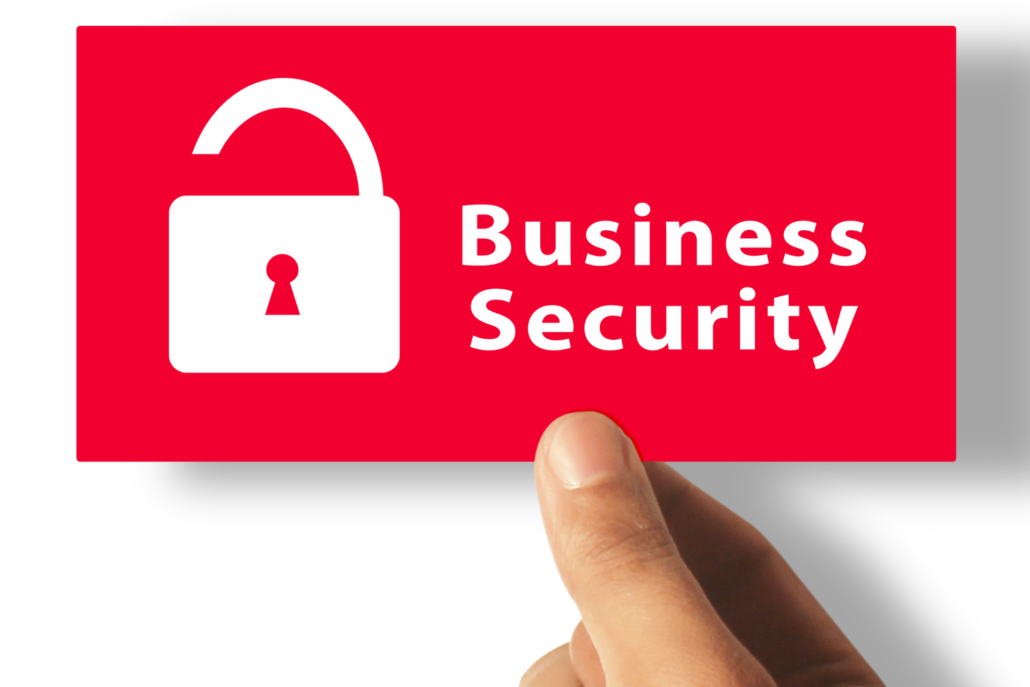Important Tips to Improve Security at Your Small Business
 Improve Your Businesses Security
Improve Your Businesses Security
by: smallbiztrends.com
Use Keyless Entry
Looking for a better way than hanging keys on a belt or a hook at the office? There’s a whole host of locking devices available now to open and close office doors through a smartphone app.
Place Wireless Cameras at Entry Points
Portable security cameras can be placed where you need them. Wireless models can be placed in spots you can’t see from the front counter.
Check for Dark Spots
Adequate lighting is important. Check for any dark spots both inside and outside so criminals don’t have a place to hide.
Check Privacy Policies
Every business needs to be sure the security and privacy policies of companies they deal with are good. This is especially true when data is being transferred. You can be held liable for any data that gets leaked.
Train Your People
You can have all the policies and procedures in the world, but your employees need to follow them. Constant training and refreshing should be the norm.
Use Motion Lights
Being proactive is an important element of security for your small business. Lurking criminals can be startled away by the blast of light from a motion sensor. Capturing them on camera provides a description for identification.
Cut Hedges Back
Hedges look great outside your small business. However, making sure they are trimmed and a reasonable height is one way to keep your business safe. Poorly kept trees and shrubs tell potential criminals your small business is being kept up.
Get a Remote Gate
Having a security gate that closes remotely is another option to consider. With fences, decorative points on top provide a deterrent that looks good too.
Install Bright Lights at Entrance Ways
Making sure all the entranceways to your small business are brightly lit deters criminals. If you don’t have a light above the doorway, installing a pole-mounted one that’s about 14 feet high works.
Close Blinds After Hours
Don’t give thieves the chance to window shop by leaving blinds open after you’ve closed your shop for the day. Making sure that you shut out the lights on the inside of your office won’t tempt any passing potential robbers.
Install Direct Walkways
Pathways should lead directly to the front of your small business. Having them meander around the sides or back can invite criminals looking for a way in. Keeping hedges and shrubs trimmed back on these pathways makes everything more secure.
Be Friendly to Customers
If you run a retail outlet, being friendly deters any potential shoplifters. Yep, there are actually statistics to back this up! According to the National Association for Shoplifting Prevention, only three percent of shoplifters are “professionals” who are economically motivated. The vast majority are motivated by social or personal pressures. A friendly attitude may help ease these pressures at least for the amount of time the person is in your store and discourage him or her from acting out. It’s also a good approach to boosting your bottom line.
Watch for Loitering
Being aware of any kind of business is important. It’s especially helpful to zero in on any customers that won’t make eye contact. Lingering for a long time without buying something should be another tip-off.
Tidy Up Shelves
Having shelving and flooring in your retail small business that is clean and organized is another deterrent. A store that looks disorganized tells potential criminals no one is paying attention.
Lock Fitting Rooms
Having locks on all fitting room doors is another security feature. Posting signs in these rooms is another shoplifting deterrent. It’s also a good idea to give employees the key that allows customers access.
Use an Updated Firewall
While you should have fire-retardant physical walls on your small business, this tip is also about cybersecurity. Making sure firewalls are up to date and working on your company computers protects against malicious viruses.
Change Passwords Often
Small businesses can lose important data through hacked passwords. It’s critical these get changed often. Small businesses should also consider multilevel authentication that includes another piece of information beyond username and password.
Back Data Up in the Cloud
Keeping sensitive online information at one location invites a security breach. Sensitive financial information and other data like human resource files can be stored in the cloud for optimal security.
Have a Privacy Plan for Mobile
Mobile devices are everywhere and small businesses can use them to their advantage. However, it’s important to have a security plan so sensitive business information is kept private and confidential.
Lockup Laptops at the End of the Day
Keeping your business computers locked in a secure location keeps unauthorized people from mining your information. Laptops should be locked up at the end of every business day.
Get Reinforced Steel Doors
Small businesses need to have the front-line protection of good physical doors. Steel or reinforced wood is preferable for the walk-in kind. Stay away from the ornate glass on the sides because it can easily be broken. If you have a garage, make sure to have proper padlocks on the sliding doors at the front.
Don’t Open Strange Email Attachments
More and more, small businesses use emails to correspond with customers and suppliers. These emails often have attachments with viruses in them. One good tip is to never open an attachment unless you are sure who it is from.
Of course, having good virus and spyware protection programs installed makes that environment safer.
Remove Ex-employee User Accounts
You may have parted ways with an employee under the best possible conditions. However, you should still delete their relevant small business accounts including usernames and passwords. They may not have any bad intentions, but even losing a smartphone can put valuable information in the wrong hands.
Use Inventory Front Door Keys
Some things you can do to increase security at your small business are simple. Not all of them involve cybersecurity and managing the physical keys you give out to the front door is essential. You should always number and code any of the keys to your business so that you can keep track of them.
If even one of these keys is lost or missing from the inventory, business owners should replace each and every lock. Make sure that you get keys from employees that are leaving for whatever reason.
Walk Around the Outside of Your Building
It doesn’t matter whether you are discussing email security or physical security, small business owners need to stay vigilant. Walking around the outside and inside of your building on a regular basis will keep you apprised of any security concerns you need to fix.
Everyone including employees should keep an eye out when they are arriving or leaving work. Unfamiliar people should be questioned when they are on your company property.
For any questions feel free to contact FSP!





